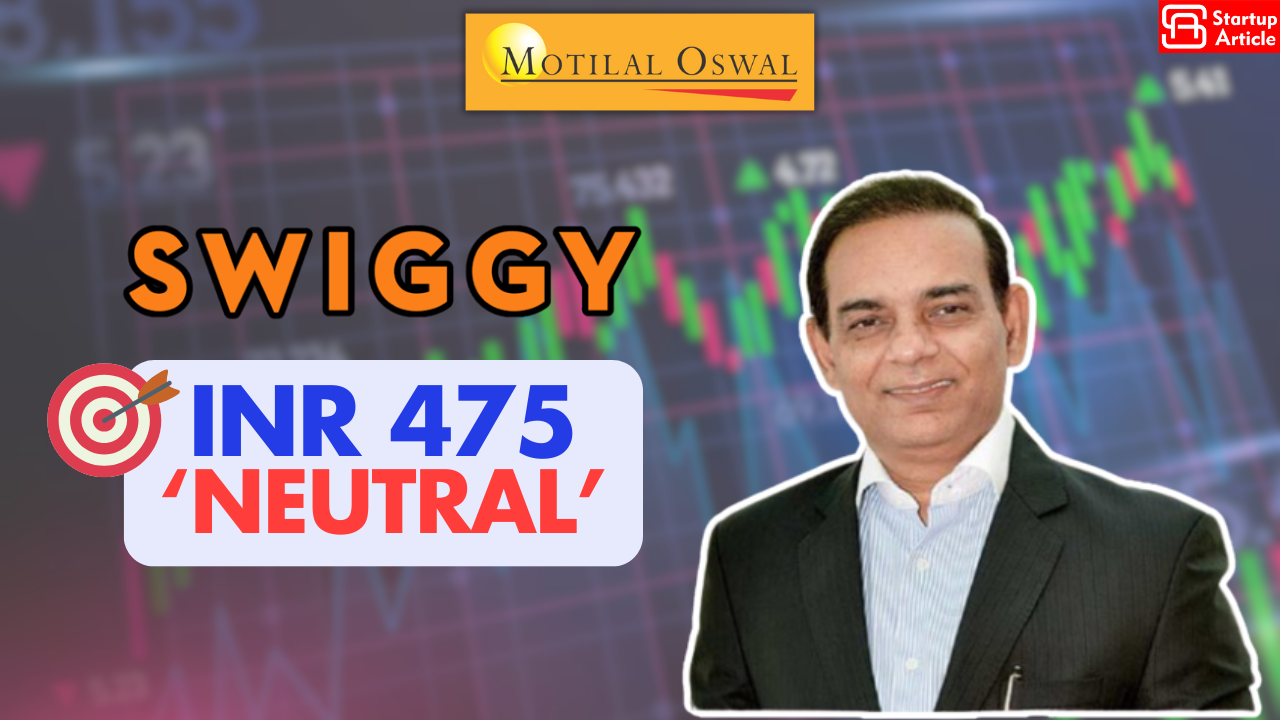Motilal Oswal, a brokerage firm, has began coverage on Swiggy with a ‘neutral’ rating, days after the company’s massive $1.3 billion public offering, claiming that the foodtech giant’s unified app approach will give it an advantage over its counterparts in the highly competitive food delivery and rapid commerce industries.
The firm has set a price objective of INR 475 for Swiggy, representing an almost 15% increase from the stock’s close on Tuesday.
Analysts at Motilal Oswal noted that Swiggy has lost its market leadership position to Zomato and Zepto, despite being a category pioneer in both food delivery and rapid commerce.
However, the brokerage believes Swiggy has the potential to be one of the top three companies in the quickly rising quick commerce market, which has changed how Indian customers purchase for a wide range of essential and non-essential commodities.





